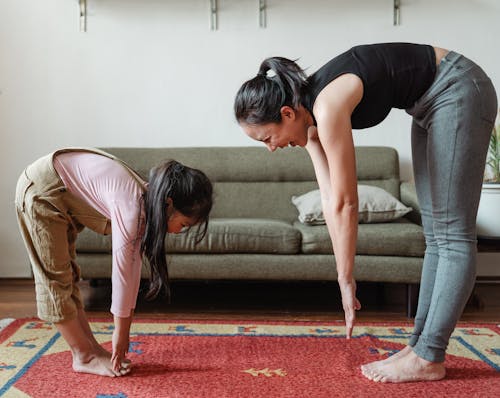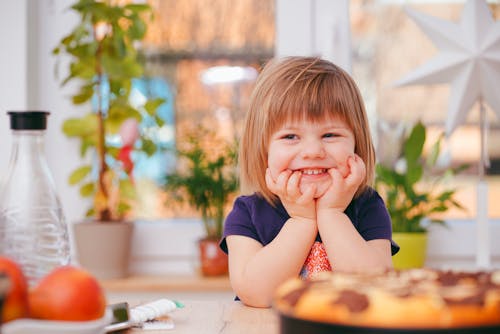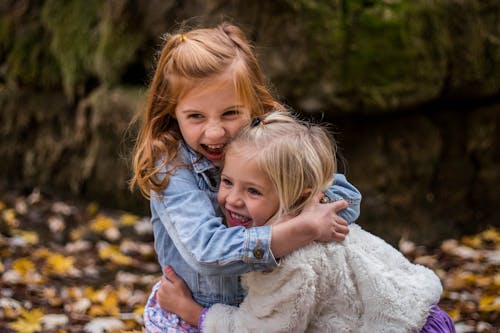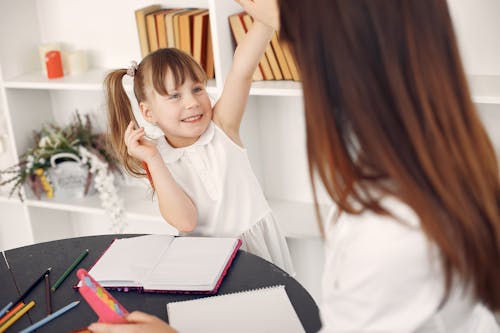Self esteem and confidence is something a lot of us struggle with, even as adults – perhaps especially as adults. When we look at our young children, often we see them feeling brave, outgoing and happy within themselves – just like we used to be.
So where does that confidence and self-assurance go when we get older? Life can wear us down. Mistakes get made, embarrassing moments happen, things don’t work out – all of this can knock our confidence and make us feel like we’re not as valuable as we may have originally thought.
That isn’t something we ever want for our children. Life will have its inevitable ups and downs but we want them to be able to stand strong against those low moments, and be able to still feel good about themselves and feel proud and confident in who they are.
Raising confident kids is all about helping them to believe in themselves, stand up for themselves and believe in their right to happiness. Confidence isn’t being outgoing or even particularly outspoken. It’s more about being able to put yourself out there and believing that your voice matters, as well as your abilities and ideas.

Confidence with kids could be putting themselves forward to try out for a music group or sports team or feeling able to ask a question in class or being proud of their differences. Shyness is not necessarily a sign of a lack of confidence. Some children are just quieter than others and don’t particularly want to be the loudest person in the crowd. If being quiet is who they are, then they should feel confident in being so.
There are positive reinforcements and experiences that we can help our kids to have to help build them up and shore up their self-esteem. Different things will work for different people, just as different negative experiences will impact everyone differently.
Things that can affect confidence are:
School test results
Feeling unsupported by loved ones
How we feel about how we look
Feeling under pressure to achieve in hobbies
Peer pressure
Family problems
Feeling alone or excluded
These are common worries and experiences that can make people feel they lack confidence, but there are plenty of others that may not be on this list. Working up confidence takes time and is a combination of experiences and practices in our daily lives. Mind.co.uk, a UK mental health charity outlines some of the most important things we can help our kids practice, helping them to feel happy and secure being themselves.
Teach them to be kind to themselves

It’s easy for kids to look at mistakes and embarrassing moments as all consuming and utterly mortifying. They haven’t the life experience yet to realise that these things happen and that we have to forgive ourselves when things go wrong.
Rationalising these thoughts before they end up being catastrophised is important, as is teaching them to rationalise it themselves. A handy way to do this is to ask them, ‘If a friend was going through this, what would you say to them?’ Removing them from the situation can bring a bit of distance and the figurative friend makes them be kinder to themselves.
Positive statements are also good to have on hand as part of their vocabulary. Calming and bolstering things like ‘I am enough’, or ‘I am doing my best and that’s all I can do’ can work as affirmations that can centre them when they feel low.
These are powerful ways to change mindsets form a young age, changing what they see as awful mistakes into something more manageable that they can move past.
Help them to look after themselves

These are the basics – sleep, nutrition, hydration, exercise – when we feel good, our mindsets are automatically more positive and secure in our own bodies. Exercise is a great outlet for kids to help them feel confident and self-assured if they’re good at sports. Even if they’re not, it can be a source of fun and enjoyment, helping them to work with others, which is always good for self-esteem, knowing you get on well with those around you in a teamwork environment.
Sleep and nutrition are just as important for kids if not more so than for adults. A proper nights rest with the right balanced diet can work wonders for how a child views themselves, as well as their relationship with food which can have huge impact on confidence down the line into teenagerhood.
Focus on the positives

"I have an achievements jar where I write at least one thing I achieved that day (and date it) and put it in the jar." (Mind.co.uk)
This is one example of how to help kids feel more positively about themselves, but there’s plenty out there. Focusing on the positives is advice that all of us as adults could use as well. End each day or each school day by asking them what good things happened to them that day, or when they felt appreciated, valued and seen.
It’s also good to list things you like about yourselves and each other. Sometimes stepping outside of ourselves to see ourselves from another’s perspective can make us appreciate things about ourselves we hadn’t seen before.
Encourage spending time with people

This one needs to be qualified – spend time with people who make you feel valued. Fun with friends and family can make us feel loved and seen. Connecting with those people helps to build trust and self-esteem, knowing that these people like them exactly as they are with no pretending or showing off in front of peers.
Learning to assert themselves

Assertive doesn’t mean rude or talking over others. It just means feeling confident enough to voice your needs and opinions, and also standing up for them.
This is another skill that even a lot of us adults need to work on, but it’s all about boundaries and respecting your own and others. There are small ways our kids can assert themselves to build up independence and confidence, like having them order their own food in a restaurant or encouraging them to speak up and ask questions when you’re out somewhere on a tour, visit or activity.
Do things they enjoy

It’s pretty simple: When we are good at something or have fun with an activity, we feel confident. Knowing that this is an arena that they feel capable and inspired by can bring about feelings of security and self-assurance that this is something they don’t have to worry about failing at.
Nurturing that hobby or talent is key, because we all feel better knowing we have talents we can draw on for self-worth.
Try something new

Trying something new makes us put ourselves out there. We may not always succeed, but it’s in trying new things that we work up the confidence to take chances and trust ourselves. Helping them to believe they can develop this new skill and meet people is a boost to their self belief, whether its through a sports team, music class or just something fun and different like dance class.
Mind.co.uk believes no one should have to face a mental health problem alone. They’re there to listen, give you support and advice, and fight your corner through your issue. Their Infoline, which offers callers confidential help for the price of a local call can be reached on 0300 123 3393.





